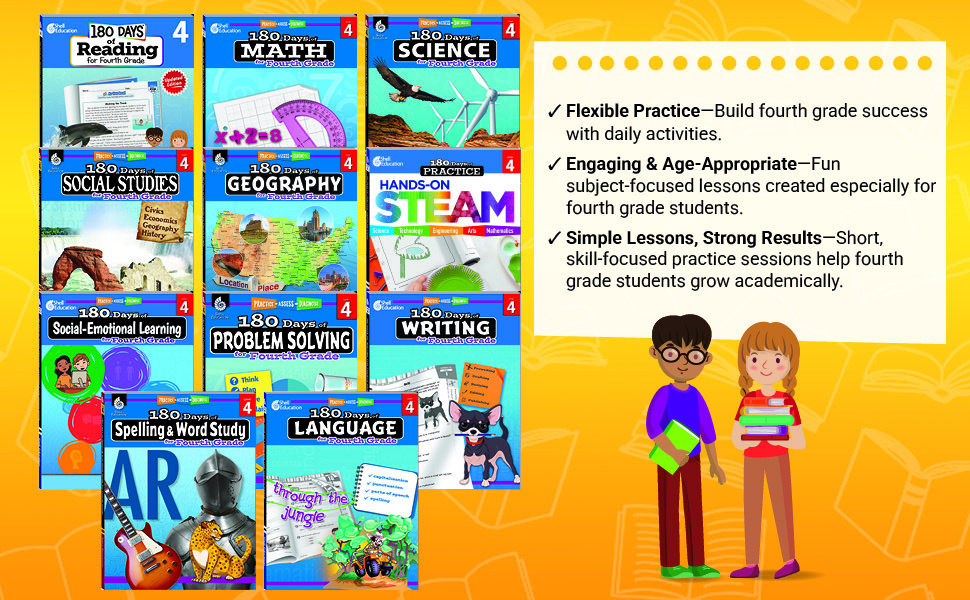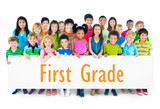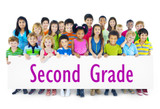What Your Fourth Grader Should Be Learning
Fourth grade is an exciting time in a child's educational journey, marked by expanding horizons, deeper exploration of subjects, and the development of critical thinking skills. As children progress through the elementary years, they build upon the foundational knowledge acquired in previous grades and engage in more complex and challenging learning experiences. In this article, we explore what your fourth grader should be learning and why these skills are essential for their continued growth and academic success.
1. Advanced Reading Comprehension: Fourth graders focus on developing advanced reading comprehension skills by analyzing texts more critically, identifying main ideas, themes, and author's purpose, and making connections across different genres. They engage in discussions, conduct research, and draw evidence from texts to support their interpretations, fostering deeper comprehension and critical thinking skills.
2. Writing Fluency and Expression: Fourth graders refine their writing skills by composing more sophisticated and structured pieces across various genres, including narratives, expository essays, persuasive arguments, and poetry. They learn to use descriptive language, organize their ideas logically, and revise and edit their work for clarity and coherence. Writing becomes a tool for self-expression, communication, and critical thinking.
3. Mastery of Mathematical Concepts: Mathematics in fourth grade involves mastering foundational concepts such as multiplication, division, fractions, decimals, and geometry. Fourth graders deepen their understanding of mathematical operations and problem-solving strategies through real-world applications and hands-on activities. They engage in mathematical reasoning, analyze patterns, and communicate their mathematical thinking effectively.
4. Scientific Inquiry and Experimentation: Fourth graders explore scientific concepts in greater depth through hands-on experimentation, observation, and inquiry-based learning. They investigate topics such as energy, ecosystems, the solar system, and the scientific method, developing critical thinking skills and a deeper appreciation for the natural world. Engaging in scientific inquiry fosters curiosity, creativity, and problem-solving skills.
5. Social Studies and Historical Understanding: Fourth graders delve into the study of history, geography, civics, and culture, developing a deeper understanding of historical events, influential figures, and cultural traditions. They explore topics such as early American history, government systems, and world cultures, analyzing primary and secondary sources and drawing connections to contemporary issues. Studying social studies fosters critical thinking, citizenship, and a sense of global awareness.
6. Advanced Language Skills and Vocabulary Expansion: Fourth graders continue to expand their vocabulary and refine their language skills through reading, writing, and oral communication. They learn new words through context, word analysis activities, and explicit vocabulary instruction. Developing strong language skills enhances comprehension, communication, and academic achievement across all subjects.
7. Critical Thinking and Analytical Skills: Fourth graders develop critical thinking skills through analysis, evaluation, and problem-solving across various subjects. They learn to interpret information, make connections, and draw conclusions from texts, data, and evidence. Engaging in discussions, debates, and collaborative projects enhances their ability to think critically and creatively.
8. Digital Literacy and Technology Integration: Fourth graders further develop their digital literacy and technology skills, learning to navigate digital tools, evaluate online resources, and use technology for research, communication, and creative expression. They explore digital citizenship topics such as online safety, privacy, and responsible use of technology, preparing them for success in a digital world.
9. Continued Fine Motor Development: Fine motor skills continue to be refined in fourth grade through activities such as handwriting, drawing, painting, and crafting. Strengthening fine motor skills enhances dexterity, precision, and coordination, supporting tasks that require manipulation of small objects and tools.
10. Growth Mindset and Resilience: Fourth grade is an opportune time to cultivate a growth mindset and resilience in children. They learn to embrace challenges, persist in the face of setbacks, and view mistakes as opportunities for learning and growth. Developing a positive attitude towards learning fosters confidence, perseverance, and a lifelong love of learning.
In conclusion, fourth grade is a pivotal year for building upon foundational skills and fostering deeper understanding and inquiry across various academic disciplines. By focusing on reading, writing, math, critical thinking, and social-emotional development, educators and parents can ensure that fourth graders are well-equipped for the challenges and opportunities that lie ahead. It's not just about what children learn in fourth grade, but how they learn and the skills they acquire to become lifelong learners and contributing members of society.
Recent Posts
-
What Your Kindergartener Should Be Learning
Kindergarten marks the beginning of a child's formal education journey—a time of exploration, discov …Jan 7th 2026 -
What Your First Grader Should Be Learning
First grade is an exciting time in a child's educational journey. It marks the transition from the e …Jan 6th 2026 -
What Your Second Grader Should Be Learning
Second grade is a pivotal year in a child's educational journey, marked by continued growth and expl …Jan 5th 2026





